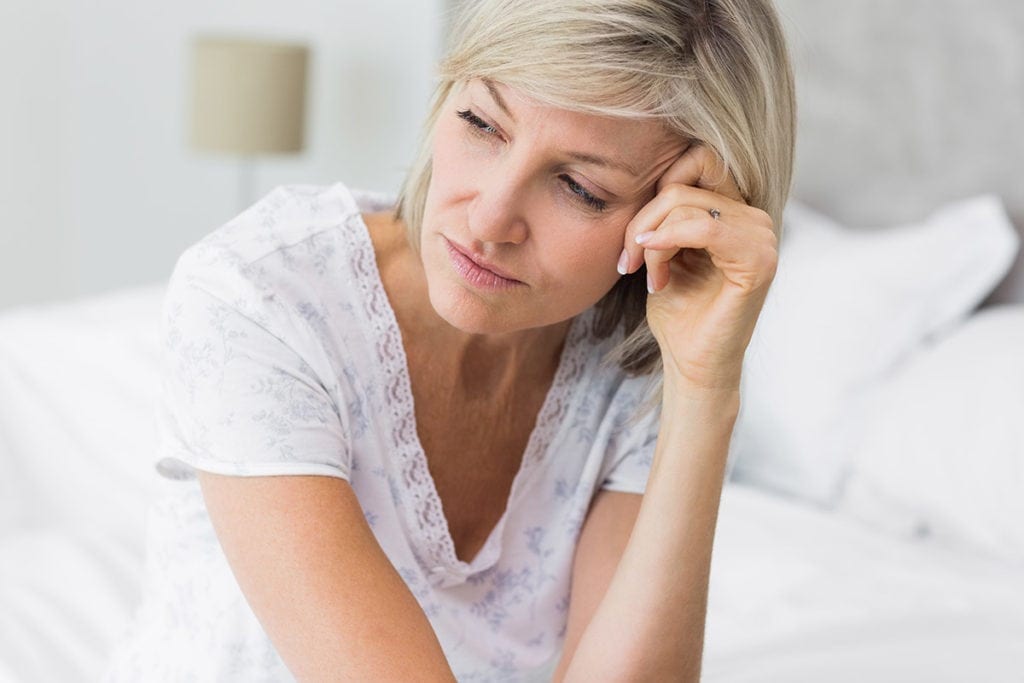Vaginal Dryness – Shhhhhh

Vaginal dryness.
It’s not something you want to talk about. It’s a little bit like incontinence, it’s a not-something-we-talk-about thing. But, it’s OK, you can read about it in private and at your leisure here.
Vaginal dryness is one of the distressing signs of peri- and post-menopause. The discomfort of the condition is further exacerbated by the fact that so many women suffer in silence because of its ‘not-something-we-talk-about’ 🤫 status.
The thing is though it’s common, and it’s linked to one of the other signs – lack of libido – so it’s super important to find ways to deal with it. Not only for your physical wellness but because it delivers quite a hit mentally and emotionally.
Causes of Vaginal Dryness
The most common reason for vaginal dryness is ageing and declining estrogen levels during the meno years. The ovaries produce the sex hormones (estrogen, progesterone, testosterone and DHEA) and it’s these that keep the thin layer of moisture that coats the walls of our vagina nice and moist. In our younger years, this moisture helps sperm survive and travel to create a healthy pregnancy.
During perimenopause, the hormones produced by our ovaries begin reducing which can, not only decrease moisture levels on the vaginal walls but also cause them to thin and become less elastic.
Vaginal dryness is one of the distressing signs of peri- and post-menopause and many women suffer in silence because of its ‘not-something-we-talk-about’ 🤫 status. Share on XAccording to the Mayo Clinic estrogen may also decrease due to:
- Breastfeeding
- Childbirth
- Cigarette smoking
- Effects on your ovaries from cancer therapy
- Immune disorders
- Oophorectomy (ovary removal surgery)
- Use of allergy and cold medications
- Douching
- Sjogren’s syndrome
The Side Effects of Vaginal Dryness
- Discomfort during sex
- A burning va-j-j
- Lack of libido and orgasm
- Vaginal itching
- Urinary tract infections
4 Things You Can Do
- Head to the kitchen. It’s amazing what Mother Nature serves up on the healing front. Take a tip from the ancient wisdom of Ayurveda and use coconut oil or ghee to soothe, heal and de-itch. The anti-inflammatory benefits of aloe vera is also a brilliant soothing healer.
- Avoid bubble baths (have one of these instead), perfumed soaps and douching.
- There are also lubricants available that may help. Choose one that’s water-based and doesn’t contain fragrance or artificial colours.
Do You Need To See Your Doctor?
It’s always important to seek professional medical advice when something is causing you undue discomfort, and if you’re bleeding or manifesting sores it should definitely be on your agenda.
Hope that helps 😀
Any questions don’t hesitate to send me an e here.









